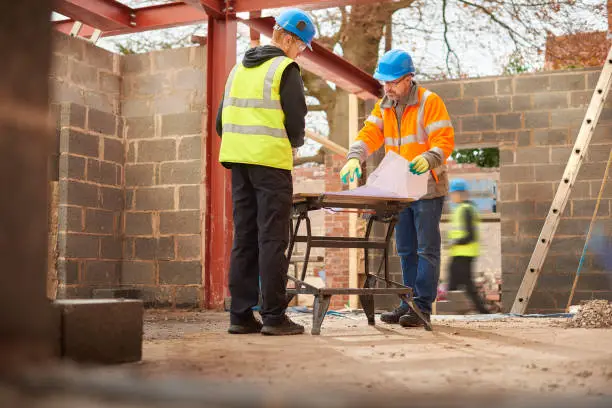Investing in a property is a significant decision that requires careful consideration and attention to detail. It’s a substantial financial commitment, and the last thing any property buyer wants is to discover costly issues after the purchase. This article will explore the value of building survey and how they can save you from property nightmares. By understanding the importance of building surveys and how they uncover hidden problems, you can make informed decisions, ensuring your investment is a sound one.
How a Surveyor Can Save You from Costly Property Nightmares
A building survey, also known as a structural survey or full building inspection, is a comprehensive assessment of a property’s condition. Unlike a standard homebuyer’s report, a building survey provides in-depth details about a property’s structural integrity, potential issues, and necessary repairs. It’s a crucial step in the property buying process to safeguard yourself from unforeseen expenses and unpleasant surprises.
The Benefits of a Surveyor
- Thorough Assessment: A surveyor is an extensive examination conducted by a qualified party wall surveyor who assesses the property from top to bottom. They inspect everything from the foundation to the roof, identifying potential issues that may not be apparent during regular viewing.
- Uncover Hidden Problems: A surveyor is designed to reveal hidden defects that could lead to costly repairs in the future. These issues may include structural problems, dampness, subsidence, or faulty wiring, among others.
- Negotiation Power: Armed with the survey report, you gain better negotiation power. If the survey identifies significant problems, you can either negotiate a lower price with the seller or ask them to address the issues before finalizing the purchase.
- Peace of Mind: By investing in a building survey, you gain peace of mind knowing the true condition of the property. It helps you avoid unexpected financial burdens after moving in.
- Planning for Future Expenses: The survey report not only points out immediate issues but also provides insights into potential repairs that may be required in the future.
When Should You Get a Building Survey?
A building survey is recommended in the following situations:
- Older Properties: For older properties, a surveyor is crucial, as they are more prone to structural issues and wear over time.
- Listed Buildings: Listed buildings often have unique construction and require a thorough assessment to understand their condition properly.
- Renovations: If you plan to renovate a property extensively, a building survey will help you understand the scope of work and potential challenges.
- Suspected Issues: If you notice any visible signs of damage or issues during a viewing, it’s wise to get a survey to assess the extent of the problem.
Types of Building Surveys
- Full Building Survey: As the most comprehensive option, a full building survey provides an extensive examination of the property’s structure and condition.
- Homebuyer’s Report: This is a less detailed survey that is suitable for newer properties or those in relatively good condition.
- Condition Report: A basic survey that outlines the property’s condition and highlights any significant issues.
The Building Survey Process
- Appointment: After choosing a qualified surveyor, schedule an appointment for the survey. Make sure to have access to all areas of the property.
- Inspection: The surveyor will conduct a thorough inspection, examining both the interior and exterior of the property.
- Report Preparation: Following the inspection, the surveyor will compile a detailed report, including findings, photographs, and recommendations.
- Reviewing the Report: Once you receive the report, take the time to review it carefully and seek clarification if needed.
- Decision Making: Based on the survey report, you can decide whether to proceed with the purchase, negotiate the price, or request repairs before finalizing the deal.
FAQs about Building Surveys
- What is the Cost of a Building Survey?
A: The cost of a surveyor varies based on the property’s size, location, and the level of detail required.
2. Can I Perform a Surveyor Myself?
A: Building surveys require professional expertise and specialized equipment. It’s best to hire a qualified and experienced surveyor to conduct the assessment.
3. Do I Need a Building Survey for a New Property?
A: While new properties may have fewer issues, a building survey can still uncover potential defects that the builder or developer overlooked.
4. Will the Surveyor Provide Repair Estimates?
A: A survey report typically highlights issues but doesn’t include repair cost estimates. You may need to consult with relevant professionals for repair quotations.
5. Can a Building Survey Affect the Property’s Value?
A: Yes, a survey can influence the property’s value. If significant issues are identified, it may lead to negotiations for a lower price.
Conclusion
In conclusion, a building survey is an essential tool that can save you from costly property nightmares. By investing in a comprehensive survey, you gain a clear understanding of the property’s condition and potential issues. This empowers you to make informed decisions, negotiate effectively, and plan for future expenses. Don’t leave your property investment to chance; get a survey and protect yourself from potential pitfalls.

